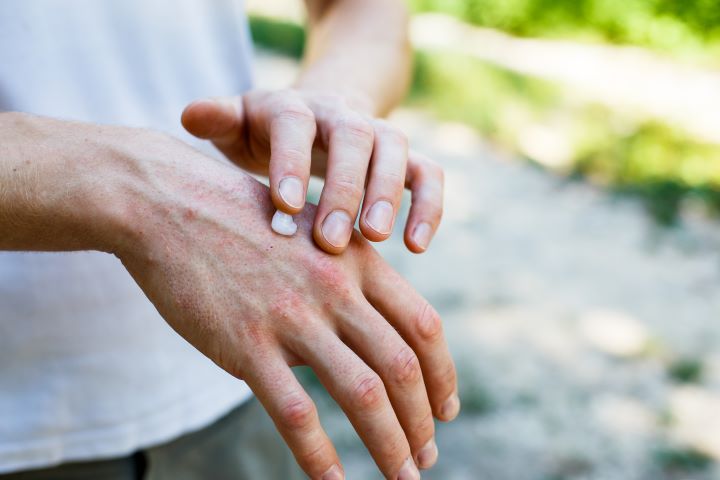Discover Effective Scalp Psoriasis Treatments and Remedies in the United States 2025
Did you know scalp psoriasis affects nearly half of those with psoriasis, causing persistent discomfort? This article explores current treatments, innovative therapies, and safe home remedies to help you better understand managing symptoms and improving scalp health.

Discover Effective Scalp Psoriasis Treatments and Remedies in the United States 2025
Scalp psoriasis represents one of the most challenging forms of this autoimmune skin condition, affecting nearly 50% of people diagnosed with psoriasis. Unlike other areas of the body, the scalp presents unique treatment challenges due to hair coverage, making medication application more difficult and often requiring specialized approaches. The condition manifests as thick, silvery scales, red patches, and intense itching that can extend beyond the hairline to the forehead, neck, and ears.
Understanding Scalp Psoriasis and Its Challenges
Scalp psoriasis occurs when the immune system mistakenly attacks healthy skin cells, accelerating their production cycle from weeks to just days. This rapid turnover creates the characteristic thick, scaly plaques that can cover small patches or the entire scalp. The condition differs from dandruff in its appearance, persistence, and underlying cause. While dandruff typically presents as fine, oily flakes, psoriasis scales are thicker, silvery-white, and often accompanied by inflammation and bleeding when removed.
The psychological impact cannot be understated, as visible flakes on clothing and social stigma often lead to decreased self-confidence and social withdrawal. Environmental factors such as stress, cold weather, certain medications, and infections can trigger flare-ups, making consistent management essential for long-term success.
Immediate Actions if You Suspect Scalp Psoriasis
Recognizing early symptoms enables prompt intervention and better outcomes. Key indicators include persistent itching that doesn’t respond to regular shampoos, thick white or silver scales that return quickly after removal, red patches visible through the hair, and bleeding when scales are scratched off. Hair loss, while not directly caused by psoriasis, can occur from excessive scratching or aggressive scale removal.
The first step involves consulting a dermatologist for proper diagnosis, as several conditions mimic scalp psoriasis. A healthcare professional can differentiate between psoriasis, seborrheic dermatitis, and other scalp conditions through visual examination and sometimes skin biopsy. Early intervention prevents progression and reduces the risk of developing psoriatic arthritis, which affects up to 30% of psoriasis patients.
Medical Treatments for Scalp Psoriasis in 2025
Treatment approaches have evolved significantly, offering patients multiple effective options. Topical treatments remain the first line of defense, including corticosteroid solutions, vitamin D analogs like calcipotriene, and combination therapies. Coal tar shampoos and salicylic acid preparations help remove scales while reducing inflammation.
For moderate to severe cases, systemic treatments including methotrexate, cyclosporine, and newer biologic medications like adalimumab and ustekinumab provide substantial relief. Phototherapy, particularly narrowband UV-B treatment, offers another effective option for widespread scalp involvement. The FDA has approved several new treatments in recent years, including topical roflumilast and oral deucravacitinib, expanding therapeutic options significantly.
| Treatment Type | Provider/Product | Cost Estimation |
|---|---|---|
| Prescription Topical | Clobetasol Solution | $50-150/month |
| Biologic Injection | Humira (Adalimumab) | $5,000-7,000/month |
| Coal Tar Shampoo | Neutrogena T/Gel | $8-15/bottle |
| Phototherapy Sessions | Dermatology Clinics | $75-200/session |
| Oral Medication | Otezla (Apremilast) | $3,500-4,500/month |
Prices, rates, or cost estimates mentioned in this article are based on the latest available information but may change over time. Independent research is advised before making financial decisions.
Removing Psoriasis Scales from the Scalp Safely
Proper scale removal prevents further irritation and improves medication penetration. The process begins with gentle softening using mineral oil, coconut oil, or specialized scale-softening products applied before shampooing. Allow oils to sit for several hours or overnight, then use a fine-tooth comb or soft brush to gently lift scales.
Medicated shampoos containing salicylic acid, coal tar, or ketoconazole should be massaged gently into the scalp and left for the recommended time before rinsing. Avoid aggressive scrubbing or picking at scales, which can worsen inflammation and potentially cause infection. Some patients benefit from alternating between different types of medicated shampoos to prevent tolerance development.
Addressing Scalp Itching
Itching management requires a multi-faceted approach combining immediate relief with long-term control strategies. Cool compresses provide temporary relief, while antihistamines can help manage severe itching episodes. Topical anesthetics like lidocaine offer short-term numbing effects for intense discomfort.
Maintaining scalp moisture through gentle, fragrance-free moisturizers applied to damp hair helps prevent excessive dryness that exacerbates itching. Stress management techniques, including meditation and regular exercise, address one of the primary triggers for psoriasis flare-ups. Sleep hygiene becomes crucial, as nighttime scratching can worsen the condition and disrupt healing.
Managing scalp psoriasis requires patience, consistency, and professional guidance to achieve optimal results. With advancing treatment options and better understanding of the condition, individuals can effectively control symptoms and maintain healthy scalp skin. Regular follow-up with healthcare providers ensures treatment plans remain effective and can be adjusted as needed for changing symptoms or life circumstances.
This article is for informational purposes only and should not be considered medical advice. Please consult a qualified healthcare professional for personalized guidance and treatment.




